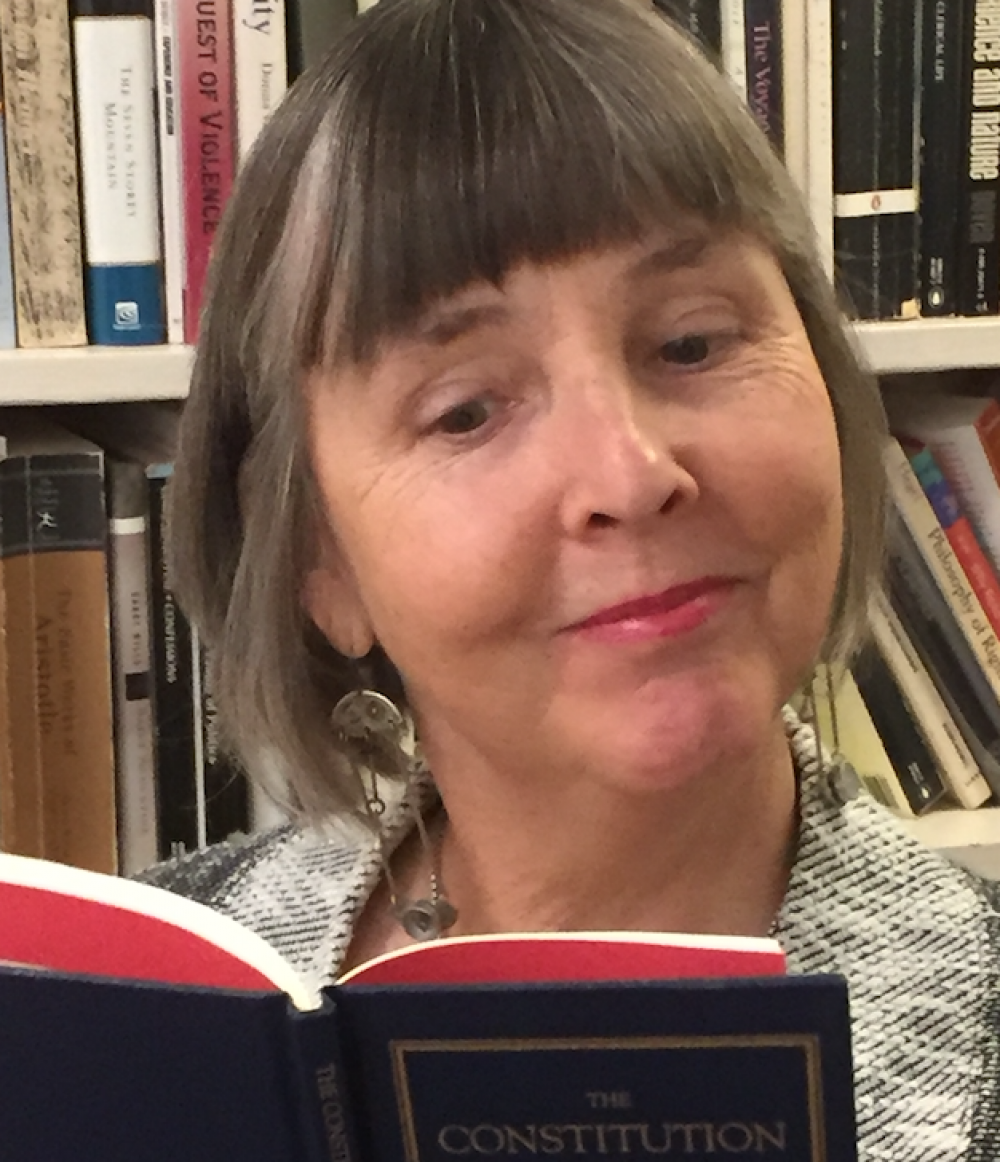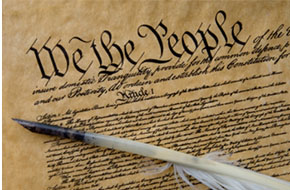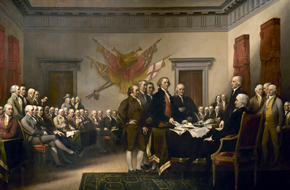Meg Mott

After twenty years of teaching political theory and constitutional law to Marlboro College undergraduates, Meg Mott has taken her love of argument to the general public. She attended the University of New Hampshire in the 1970s and is currently teaching at Keene State College. Meg’s award-winning series, Debating Our Rights, on the first ten amendments, brings civil discussions on contentious issues to public libraries and colleges.
Contact
Meg Mott
Putney, VT 05346
meg4mott@gmail.com
Cell: 802-258-1515
Available Program Formats: In person or online presentations
Meg Mott's Programs

How the Constitution Helps Us to Disagree
Deliberation is the practice that holds our democracy together, but does it always lead to better decisions? When citizens only talk to like-minded citizens, the thinking gets stuck and the decisions tend to be more extreme. This presentation gives participants a chance to find new ways to think about a contentious issue using the basic principles of the Constitution: freedom of speech and due process. Instead of carving out one’s (predictable) position in the culture wars, we’ll look at the best arguments on a contentious issue from the view point of progressives, conservatives, and libertarians. By the end of the discussion, participants will have a greater understanding of how the Constitution can help us to foster political friendships.


The First Amendment
The First Amendment protects our most basic freedoms, none more important than freedom of speech. But what do we do about speech that threatens to destroy the social fabric? This presentation considers the constitutional arguments for and against hate speech codes and why the Supreme Court ruled against St. Paul's hate speech ordinance. If hate speech codes are unconstitutional, it falls on citizens to find other ways to counter hateful speech. We'll explore what capacities citizens need to preserve freedom and the social fabric. Could it be that persuasion and deliberation might be better strategies for all of us?

What the Declaration of Independence Offers U.S. Social Movements
The Declaration of Independence acknowledges a most volatile right: the people's right to rebel. If the people are not happy with their government, then it is within their unalienable rights to "alter and abolish it." In 1776, that right was exercised through armed rebellion. But is that the only way to exercise that right?
In 1963, John Lewis envisioned a different sort of revolution, one that would achieve the ends of freedom and liberty through non-violent means. In this "unfinished revolution," he argued, current enemies are seen as future friends. We'll consider how the language of the Declaration guides social movements, across the political spectrum, to institute a government that seems most likely to protect each other's unalienable rights.
